Traditional 4 oven AGA cooker
Hello, I am new to this site, but have been poring over many of the very helpful comments. We are doing a kitchen from scratch for the first time in 25 years. I have admired the AGA for a long time, & now have a chance to actually have one! However, aside from a nearby AGA dealer, I have no one to turn to for actual experience with one. The 2 biggest concerns I hear repeatedly are that they make your kitchen hot, and the learning curve is very steep. I think I want the traditional AGA, but I would love to hear pros/cons & comments in general! My other choice is a Wolf 6 burner pro range top and a 30" double wall oven (Wolf as well). I know, I'm comparing apples & oranges...I am an experienced cook, and would like to believe I won't have a hard time learning the AGA...
Comments (24)
fandlil
15 years agolast modified: 9 years agoIf I understand correctly, the AGA 4 ovens are kept on all the time. Given the increasing concern about the need to conserve fossil fuels and find better alternatives, I think it is unconscionable to have such a range as the AGA, unless the ovens can be shut off without a loss of its supposed advantages.
weedmeister
15 years agolast modified: 9 years agoI've never used one. But there used to be a dealer near me where I got my woodstove. The guy spent some time explaining it to me. The 'flame' stays on all the time, but it is a low flame, lower than in a conventional oven. The heat in the oven spreads from one central location to the 4 ovens and the cooktops. The ovens stay warm due to very good insulation and mass (the thing is nearly solid cast iron). There is only one temperature control. Each oven has a different temperature (from like 275* to 400*). The cooktop elements are solid flat cast iron, hottest in the center and cooler to the outside. Temperature control is done by simply moving the pan to the outside edge. There is no exposed flame anywhere. The unit comes with insulated covers for the cooktop elements when not in use.
I got the impression the internal flame is like a pilot light.
Related Professionals
Montebello Kitchen & Bathroom Designers · Southampton Kitchen & Bathroom Designers · West Virginia Kitchen & Bathroom Designers · Auburn Kitchen & Bathroom Remodelers · Gardner Kitchen & Bathroom Remodelers · Oklahoma City Kitchen & Bathroom Remodelers · Port Arthur Kitchen & Bathroom Remodelers · Richland Kitchen & Bathroom Remodelers · Salinas Kitchen & Bathroom Remodelers · Trenton Kitchen & Bathroom Remodelers · Tuckahoe Kitchen & Bathroom Remodelers · Wilmington Island Kitchen & Bathroom Remodelers · Newcastle Cabinets & Cabinetry · Warr Acres Cabinets & Cabinetry · Wheat Ridge Cabinets & Cabinetrymarthavila
15 years agolast modified: 9 years agoTry the Agalovers Group at Yahoo. That is an internet community of people who own traditional Aga cookers. Over there, you are likely to get a bigger and faster response (both pro and con) from those who can give you practical advice and biased opinions --based on their direct experience with the product -- than you will get here. Which is not to say that there aren't owners of traditional Agas on this group! But not so much as you will find on Agalovers@yahoo.com
wa8b
15 years agolast modified: 9 years agoYou don't say where you live, but if you live anywhere that air conditioning is necessary during the warmer months of the year, a traditional AGA cooker is probably a poor choice.
Traditional AGA cookers are are on 24/7. While they're well insulated and not quite the fuel hogs one might expect, they are not the cheapest appliances to operate, and only make sense if the radiant heat they throw off is of any value (warming the kitchen) for a good portion of the year. If you live in some place with hot summer months, not only is the radiant heat going to go to waste, but you'll increase your air-conditioning load with a traditional AGA in the kitchen.
That being said, the traditional AGA is a wonderful cooking appliance. I had one for a number of years when I lived in northern England. Most cooking is done in the ovens which provide very even heat and are always instantly available. You don't adjust the temperature of the range, you move food from oven to oven, depending on the cooking temperature required. The two hobs on top of the cooker are large and will accommodate several pans at a time. One is very hot, used for boiling or searing in a skillet, the other is slower, used for cooking at lower temperatures. Generally, you start by browning or cooking a dish on top of the cooker, but finish up cooking in one of the ovens. There is a definite learning curve to figuring out where to start a dish, and how to finish up in the ovens.
I loved cooking on the AGA. It's perfect for slow food at its best -- but I would never consider another traditional AGA as my only cooking appliance, even here in Seattle where we generally don't need air-conditioning. It's just too darn warm during the summer months.
If you're enamored of the AGA look, you might want to investigate the AGA Six-Four Series. The Six-Four models look very much like the traditional cookers, but they have regular gas hobs and ovens that can be turned off an on and are controlled by thermostats. An all-together more practical appliance if you live anywhere with temperate weather lasting more than a month or two each year.
Here is a link that might be useful: The AGA Six-Four Series
markw
15 years agolast modified: 9 years agoFew topics generate as much passion on both sides as this one. I cooked on an AGA during a three year stint in the UK so I might have a more independent view that most. In other word, I had the "AGA experience" but I don't (and didn't - we rented) own one. The short version: some people love the traditional AGA despite of (or maybe *because* of ) it's eccentricities. The short version: as the OP mentioned, the learning curve is steep, your style of cooking has to change dramatically. Once up that curve, cooking performance is still very poor by modern standards. As others have mentioned, an AGA is an environmental and economic disaster. For all that, you pay a premium price. Yet people love them, if that makes sense. From my viewpoint, there are many better choices.
themayorswife
Original Author15 years agolast modified: 9 years agoThank you all for your comments. Marthavila, I do know about the Yahoo group & will check it again - of course, by definition, they are biased in favor...I personally am not too worried about the heat factor as we live close to the Canadian border, and rarely need AC. In fact, we were considering radiant heat in the kitchen floor, but if we get the AGA, we won't need it! I've felt the heat of a working stove in a showroom, & it feels gentle & dry. I understand it CAN be turned way down during the summer. This apparently doesn't change anything about the quality of the cooked food, but it does add to the cooking time.
I am curious about the comment "the performance is very poor by modern standards" - what do you mean? Are you referring to the time involved? If so, many people are talking about the benefits of slow cooking now...
The AGA is expensive, but so are many other choices, Wolf, La Cornue, Lacanche, etc. When I add up the list prices of a professional rangetop, professional vent hood, double wall ovens, a warming drawer, a microwave, even that little old crockpot - all of which can be replaced (I think??) w/ the AGA, I will be coming out even or maybe even ahead. Not to mention, my kitchen will be very Zen-like; think of the cacophony of appliances most of us have now!
One final thing I've been told: they really use very little fuel. We will be using propane, as natural gas is not available in our area, & I understand it will cost about $1/day to run. I am very concerned that I use the opportunity w/ this new house to "walk lightly on this earth". Barring the future availability of kitchen appliances that run on solar or wind, I don't have a problem w/ the AGA's fuel consumption.
I'd especially love more comments from people saying what the BEST & WORST factors are about having an AGA, and from people who switched to something else, or considered the AGA, but chose NOT to buy one, and why. This is such a big commitment, and not one easily reversed. Thanks again!
trixieinthegarden
15 years agolast modified: 9 years agoWa8b did an excellent job of capturing the essence of Aga cookery. It is exactly what I would have written myself, and so I won't repeat it!
I had the opportunity to cook on one once in Seattle, WA in August. Since there is quite a bit of dampness in the air, and the air temp was coolish (high 60s) the Aga made the kitchen cozy but not overly warm. Another 20 degrees of air temp and I think it would have been noticeably warm in the kitchen. I think it is ideal for a place that is often damp, like Seattle or most of England. It takes the chill and damp out of the air.
It is definitely a different cooking experience, but I would not say far inferior to modern cooking methods. The key to cooking on an Aga is to understand positioning, as opposed to flame height. Just as you know when you need to raise or lower a flame on a gas range, you will learn when and where to move your pot for what you want to do. I think it would not be suited to wok cookery or direct grilling, but everything else in your repertoire should be easy enough to accomodate on the Aga.
Now, I say that as someone who loves to cook and found it to be an exciting challenge and adventure to learn the nuances of the Aga style. If you're not that type of person, you might find it to be more of a challenge than you'd want to take on.
I cannot speak to the environmental aspects of the Aga since I am clueless about its consumption of fuel. Since you've got an Aga dealer in town, I would recommend you speak to them directly about that particular issue...there's a lot of assumptions, misinformation and downright wrong information out there so you should go to a reliable source.
marthavila
15 years agolast modified: 9 years agoTMW, no doubt the Yahoo Group tends to be favorably biased about the traditional cooker, although I have definitely read several posts over there by significantly disgruntled owners and former owners. As for me, I'm an Aga lover of a different kind. Instead of the cooker, I chose the Aga 6-4. Unfortunately, I have yet to share about my direct experience with it since that lovely range is still patiently awaiting install in my kitchen that is taking forever to get remodeled!
wa8b
15 years agolast modified: 9 years agoMayorswife, Since you seem determined to go ahead with a traditional AGA, I won't say anything more to discourage you. I would however, encourage you to also install, or allow room for a 24" AGA Companion (perhaps in conjunction with a 2 or 3 oven traditional cooker). The Companion includes two electric ovens (one that is convection, the other with an electric broiler unit), and four ordinary gas or electric hobs. I'm reasonably sure you'll be glad you have the Companion unit when you find the traditional cooker generates too much radiant heat for regular use during the summer months. You'll be able to turn off the traditional unit and rely on the Companion for lighter summer cooking. You might also be interested to note that the Traditional cooker doesn't include a broiler unit.
I'm also quite positive you'll find your assumption of a dollar-a-day cost to operate a four-oven traditional AGA to be wildly optimistic -- particularly on propane and at today's fuel prices. I'd estimate at least triple that amount, and very likely, more. Naturally, during colder months, some of that cost will be offset by lower heating costs (at least in the kitchen), but there is no way a 4-oven Traditional AGA can be operated on propane for a dollar a day.
That being said, I still think the traditional AGA is a wonderful cooking appliance, but with today's fuel prices, I'd think long and hard about installing one -- and then only if I lived some place where it was cool at least 10 months of the year.
Trevor Lawson (Eurostoves Inc)
15 years agolast modified: 9 years agoThe Cost of running the 4 oven AGA can be worked out by your LP supplier. I think whomever is telling you that it costs a $1 a day is way off. My AGA rep was saying a $1 a day 5 years ago.
When the AGA is on tick over the burner runs at 3000 btu's per hour when it requires a boost to bring it back to temp the burner runs at 15,000 btu's per hour. If you cook for 4 hours per day you COULD be using the boost of 15,000 btu for maybe 6 hours depending on how you cook.
So your question to your LP man is if you use 138,000 btu's per day how much is that in $ terms. I may be wrong but I think you get 91,000 btu's of heat for every gallon of LP so IMO you will be looking more at $ 4.00 - $6.00 per day than what you have been advised
Wa8b is correct cook minimum on the surface and maximum inside, when you lift the lids to cook on the surface its like taking your hat off in winter all the rushes out of the top of your head, when you lift the lids on the AGA the same principal applies.
If you turn the AGA down a little in the summer months you can still cook BUT if you turn it WAY down it takes forever to heat anything up on the burner plates the ovens will work but at a detriment to what your cooking, and always remember it takes 24 house to bring the AGA back to temp once it has been turned off
themayorswife
Original Author15 years agolast modified: 9 years agoThank you for the continuing good advice. Wa8b, a delayed thank you from your first posting giving me so many details. Maybe the idea of buying the supplemental cooker for summer cooking is a consideration. You and the last poster bring up an interesting point of turning it off altogether. I hadn't thought of that possibility. That being said, I hadn't considered the extra expense of a supplemental cooker, or the expense of getting the 4 oven charged up again. Maybe I really should be considering the 6/4 instead. I would be interested to hear what you both are cooking on now - if not the AGA, what did you switch to, and are you happy you did?
markw
15 years agolast modified: 9 years agothemayorswife, by "poor by modern standards", I mean along with the retro looks a traditional AGA comes with retro performance. It's a technology that's almost a century old and in many ways cooking on one has more in common with a wood stove than with a modern gas or electric one. Most people who use this forum get concerned about whether their ovens give accurate temperatures and whether the the temperature is even inside. With an AGA, you never know exactly what you're getting for temperature (depends on what else you've been doing, how many covers open) and it varies a lot within the oven. In other words, an AGA is pretty much the opposite end of the spectrum from what most people would think of as an ideal oven. Cooking, particularly baking, involves tossing out the timer (you can't cook on time not knowing the temperature) and rotating food a lot to coax good results out of the beast. In a certain way, I'd say admit improved my cooking since I learned to cook until things were done, not on time. But for the money you pay for an AGA, it seems like you shouldn't get the inconvenience. Also, you need to decide if "coaxing" good results out of an oven is what you want have to do.
There are certain things an AGA does well, like simmering or braising. But frankly, there's nothing stopping you from cranking a regular oven down to 240 and doing exactly the same thing. There's an advantage to having all those ovens at different temperatures but a normal range and wall oven might be a better solution. Then there are some things an AGA just won't do. The ovens are only 13+ inches across, so big cookie sheets are out. You can boil a small amount of water amazingly quickly on the hot plate (but you can do the same thing in a microwave) but you can boil a big pot of water for pasta, ever - as soon as the hot plate cover is opened, the whole beast starts cooling off. And so on.
On the economy/environment aspect, AGA itself estimates propane consumption for a four oven AGA to average 75.7 liters per week. That's 19.2 gallons per week, 2.74 per day. I don't know what you're paying for propane but here it's over $2 per gallon, so we're probably talking $6 per day or so. I don't know what they're assuming for usage. An AGA burner runs between 6K BTU/hr on low and 15K BTU/hr. That doesn't sound huge until you consider that cooking using normal equipment means burning gas only a small part of the day. An AGA is like having a cooktop burner on between medium and high not just part of time but 24/7/365 instead. If you're really at all concerned about "walking lightly on the earth" but really still want the retro looks and bright colors, consider the 6/4.
Here is a link that might be useful: AGA fuel consumption
wa8b
15 years agolast modified: 9 years agoMayorswife, I have very fond memories of my old AGA. One of the things I liked most about it was that it was very low-tech. Its quirkiness somehow enhanced the pleasure of cooking, although there were also times that the drop in oven temperatures when using the boiling hob was a major annoyance. You have to plan accordingly. Nevertheless, If I were ever to move back to the north of England or to some other place with similarly cool weather...I think I'd be inclined to give another one a go.
Nowadays, I have a much more up-to-date kitchen with a Gaggenau KG-291 gas cooktop and Gaggenau electric ovens. They're much more precise, and I have to admit, I like having my ovens at eye-level with interior illumination (I'm not as young as I once was!) -- I'm very happy with the set-up, but it seems to lack soul. Fortunately, I also have a fireplace in the kitchen at counter height, so I tend to do a lot of grilling and cooking over the wood fire, which compensates to some extent.
Anyway, as I suggested above, the AGA Six-Four would give you the look of a traditional AGA, but it functions much as any other pro-style range. If the traditional cooker is something that you're not willing to forego, I'd suggest going with one of the 2 or 3 oven models and order it with the attached Companion. To get the two cookers joined into a single unit, you must order them at the same time. It's not something that can be accomplished at a later date. The combined 2-oven cooker and Companion are the same size as the 4-oven traditonal cooker. Going that route would give you the best of both worlds. The traditional cooker the right side, which you can be shut down during the warmer months, and a modern range top on the left side with thermostatically controlled electric ovens -- and a broiler.
Hope this helps.
P.S. Be sure to do some further research on the operating costs of a traditional cooker. The AGA cooker has become a luxury appliance with a luxury price tag, and one that requires a luxury operational budget. It also requires annual maintenance from an authorized AGA service person -- adding to the expense.
themayorswife
Original Author15 years agolast modified: 9 years agoWa8b & Markw, thank you so much for the detailed, thoughtful comments. I wanted honest pros & cons, and you provided them. I have a lot to think about. I'd love to be more of an intuitive cook, slowing down and enjoying the process more. There are times cooking is a flat-out chore, and other times when you can just lose yourself in all the sensory pleasures. The AGA certainly fits this fantasy! I often think the fun of many things have been lost to technology, and all the lights, buttons, etc on appliances that are supposed to make them easier & more enjoyable do the opposite.
The operating costs are a serious consideration. In this new house, we are planning to have 3 gas fireplaces & one woodburning. One of the gas fireplaces will be our main source of heat, and since it is in close proximity to where the AGA would go, it COULD be a good decision. On the other hand, $6/day just for the AGA could quickly add up to a very large propane bill.
So thank you both, and I'd still love to hear more comments from other current, former & would-be AGA owners!
lovinlife06
15 years agolast modified: 9 years agoI also had my heart set on the Aga traditional 4-oven cooker. For years I wanted it so badly and I often thought of how nice some things would be to cook. On a chilly morning I would comment to my husband once the Aga is in it will be nice in here on cool mornings. I had ordered the cookbooks and was ready for the challenge of a new cooking style. Then I like you was ready to order and was talking to contractors about floor requirements to support the weight and had to get real about operating cost and what nobody has brought up installation. I talked to a few Aga owners and was sad to admit that it is too expensive for me.It is not just the purchase but the getting it in, maintaining it and running it. I would still love one but don't want to be tied to the expense. Changing your mind with an Aga is not trivial. So I have no great input other than I understand your desire to have one but like you seem to be doing also realized it is just not practical or responsible to incur such a high fuel use. If you still need more info I can provide you a few sources to get more info from people who own them and service them.
themayorswife
Original Author15 years agolast modified: 9 years agoLovinlife, thanks for the sensitive comments. I found out propane is running over $4/gal in my area, so at about $8/day x 30, that's $250 in rough #s on a monthly basis just for the AGA!!!! However, there are so many things I think I would love about the stove. It sounds like it would be really fun to play with. People who have them apparently love them to death. They reputedly even take the dampness out of the air! This is going to be a very difficult decision, but at the end of the day, I'm not sure I can afford or justify the expense...
themayorswife
Original Author15 years agolast modified: 9 years agoI am very close to making the decision to go w/ the Aga. I've been to 2 cooking demos so far - one w/ my husband, who is not a cook, but loved the results - and another next week. I want to be very sure of my decision! I understand all the negatives about it, I think, but the positives for our particular set of circumstances seem to be outweighing the negatives.
However, my husband has a few interesting concerns: do cooking odors tend to build up in your house, since there is no overhead ventilation? We understand you do most of the cooking in the ovens, & they are well sealed, so this is minimized, but what have others' experiences been?
His other question is: if it's raining heavily during the summer, and you have to close the windows down, do you get a big buildup of heat from the Aga (assuming it's a warm summer rain)? We live close to the Canadian border, so temperatures are usually not that hot when it's raining in the summer. He also wonders how hot the house would get if you don't like to leave the windows open all the way when going to bed. We both hate having to wake up enough in the middle of the night to stumble around the house closing windows for any reason!
I do want to say we completely understand how the Aga works, that there is some heat, it's on 24/7, etc, etc. We are just looking for subjective, "been there" comments at this point.
Thanks for any advice you can give!
wa8b
15 years agolast modified: 9 years agoMayorswife,
It sounds as though you're being very thoughtful in making your choice to go with a traditional AGA, but I still feel I should reiterate my recommendation to consider a 2 or a 3 oven traditional cooker with an attached Companion cooker.
I'm also near the Canadian border (Western Washington), but given my personal experience with a traditional AGA, I'd be very reluctant to install another as my only cooking appliance. The warmer summer months here would prove to be just too uncomfortable. I simply wouldn't enjoy cooking when outside temperatures are in the 80's -- the kitchen would just be too warm without air conditioning.
A much better choice would we to install a 3-oven traditional cooker with an attached AGA Companion. The look would be nearly identical, but I'd have the option of switching off the traditional cooker during the warmer months, while still enjoying all of the same versatility during the cooler months of the year. It just seems to me to be a win-win situation.
As for your husband's reservations, let me see if I can answer. As far as ventilation, odors aren't much of a problem with a traditional cooker if you use it as it was designed to be used. All of the ovens are vented to the outside, so no odors from the ovens are ever apparent inside your kitchen. That's a marvelous feature, although because of it, you need to be a bit more vigilant, because you'll never smell anything as it approaches being done....and you'll never smell anything burning. By the same token, if you enjoy the fragrance of delicious turkey or pumpkin pies in the oven -- forget it. All those lovely smells get vented straight outdoors.
If your husband is concerned about odors from food cooked on top of the range, there's no reason that you can't still include some sort of mechanical venting above the AGA range. A range hood or an exhaust fan are certainly possible. However, the entire premise of the AGA cooking system is that you only start things cooking on top of the range, but the primary cooking is done in the ovens.
Finally, if you live somewhere with warm summer rains, then humidity levels are going to be a concern. Relative humidity goes up with warmer temperatures, so you probably would tend to be more susceptible to uncomfortable humidity with an AGA range in operation during the summer. As I mentioned earlier, being able to turn off the traditional range during warmer months and relying on the AGA Companion for lighter cooking chores during the summer would definitely prove beneficial. I know that's how I'd go.
Hope this helps. I'm sure you won't regret whatever decisions you make, but I hope you'll weigh the experience of an old AGA hand.
themayorswife
Original Author15 years agolast modified: 9 years agowa8b, thanks again for your thoughtful detailed advice. I was reading the various responses to my husband, and you are right - we will definitely consider the Companion. The dealer I am working with is not a big fan of anything other than the traditional cooker. But I won't be ordering for a while yet, so have more time to think about it. I liked the answers to the odor question - until I got to the part about smelling the good smells we are all used to with regular ovens! That is definitely too bad! Maybe we need to come up with some type of room fragrance spray just for Aga owners - sort of like the evergreen spray people buy for their artificial Christmas trees! :)
jkillorin
15 years agolast modified: 9 years agoMayorswife,
Hello, I have just recently been through the same decision process and placed my order for a 4 oven standard vent about a month ago. Like you, I read and researched for months. In fact, I decided not to order the cooker and was prepared to settle for something different - Wolf, Viking or Blue Star - even though I am convinced that over a year those appliances will use as much natural gas as the AGA if you cook everyday (LP is more expensive), they generate significant heat when cooking - and they are all expensive when you add hood, etc. (All things you already know)
What I generally found in my research is that people who don't have experience with the cooker are somewhat biased against them.
Well, then a couple I know had one installed over the summer. When they heard that I was "backing away" they called and said that whatever I decided to give up in our new house, don't give up the AGA. They replaced a gas range and are loving their new cooker. Other owners on Yahoo gave me the same kind of response.
It is an investment, but one that I am confident is safe, healthy and looking forward to enjoying for many, many years.
Good luck -robertkrish_mac_com
15 years agolast modified: 9 years agoDear ncanon,
I very much enjoyed your AGA comments. I'm still waiting for the installation of my royal blue 4-oven direct-vent model to be completed. Since I bought a floor model at half-price a few parts were missing and are not covered by the warranty. Even with delays, the stove will be finished before the new house is. My new home is located in NW Connecticut and uses propane. Although I'm familiar with AGAs from time spent in Europe I've not met anyone in the US who has one. My wife and I attended a few cooking demonstrations at Domaine Home Furnishings before they went out of business and I fell in love with it. This thing has fewer faults than my wife and I've been married for 40 years. Compromises are the stuff of life as indicated in your comments. My wife still works but I'm retired. I cook. She cleans. We're well fed and reasonably neat. My daughter inherited my love of cooking and we both, at different times, took a 110 hour cooking course at the French Culinary Inst. in NY. My point in responding to your post is to tell you how well you nailed it in describing your relationship with your AGA. Propane currently sells for $2.09 a gallon in my area and the installer tells me to expect to burn 12-15 gals. weekly. I recently traded an 18 mpg suv for a 31 mpg MINI Cooper S Clubman. My conscience is clear. Anyone who considers an AGA but doesn't take into account the commitment and compromises required isn't really getting it, like the driver who cruises in the passing lane. An AGA, all 1290 lbs of it, dares to be loved...by those of us who consider a soup, casserole or roast a path to enlightenment and reason enough to be in the kitchen. Thanks again. Kindred spirits are getting thin on the ground.janm236_yahoo_com
12 years agolast modified: 9 years agoI bought an Aga 4 oven cooker from a friend who sold his house and was downsizing. I originally bought it because it was pretty and I as in the process of renovating my kitchen. I have had it for about a year. I found the learning curve to be pretty much non-existent and I absolutely adore my Aga. There is not one single thing that I have tried that the Aga doesn't cook well. Both my husband and I cook and neither of us ever wants to cook with anything else! It does make the kitchen warmer but I don't find it to be a problem, even though we live in Southern California. I am totally sold. We have a natural gas version.
graewmns
3 years agoBroiling can easily be done at, or near the top of the roasting oven. For thick cuts of meat, some cooking in another area of the roasting, or baking ovens can be used to start the cooking, with the browning part being done at the top of the roasting oven. NC can get hot and humid in the summer, but no worries in my kitchen, due to the warmth of the AGA. I turn it down, just a bit, or place a small fan on the floor, to blow across the bottom of the c ooker, to stir up the area of slightly warmer air. As for a learning curve - early on, I was baking a pound cake in the baking oven. Less than half way through the process, my husband and I decided to go out, for a couple of hours. I put the cake, such as it was, on the floor of the simmering oven, expecting the cake to be ruined. Instead, when we arrived home, and dared to peak at the cake, it was high and beautiful. From then on, I felt confident that, with a little trial and error, my new AGA and I would make delicious food, together. I call her Topsy.
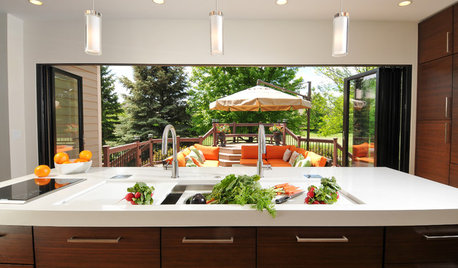
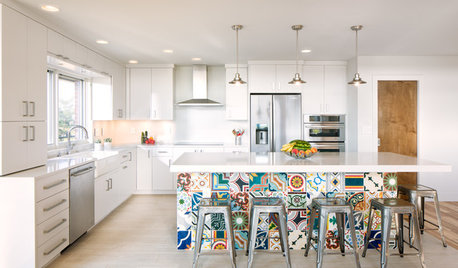
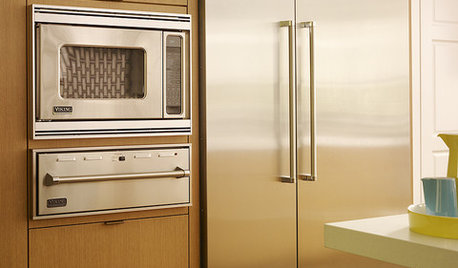
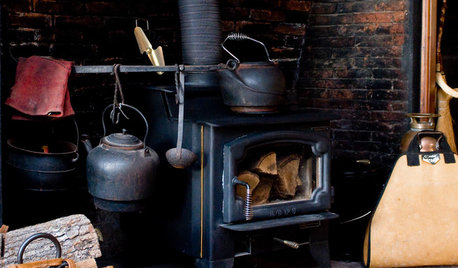
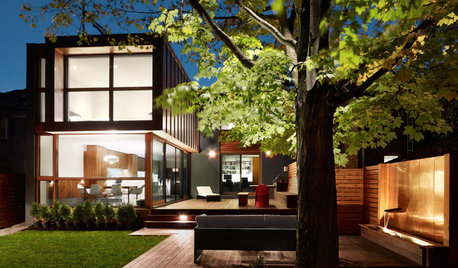
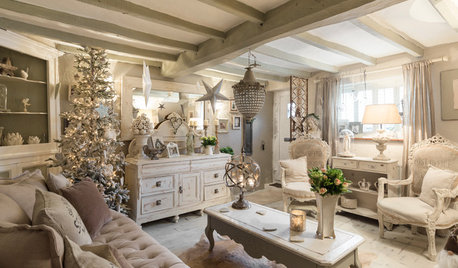
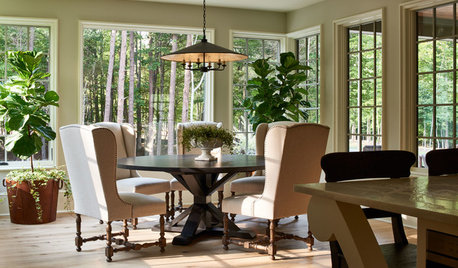
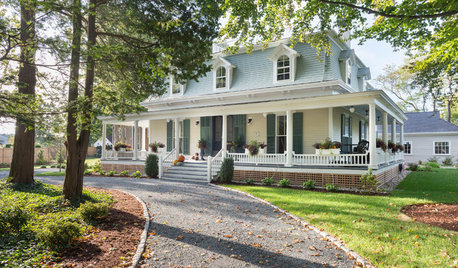
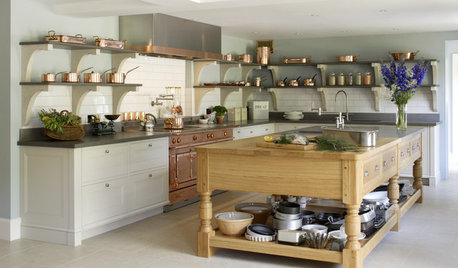
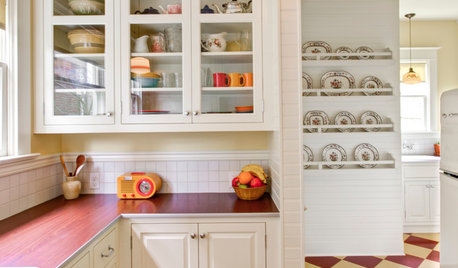






ncanon